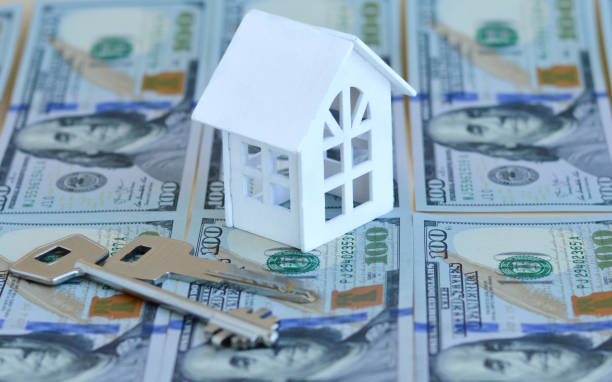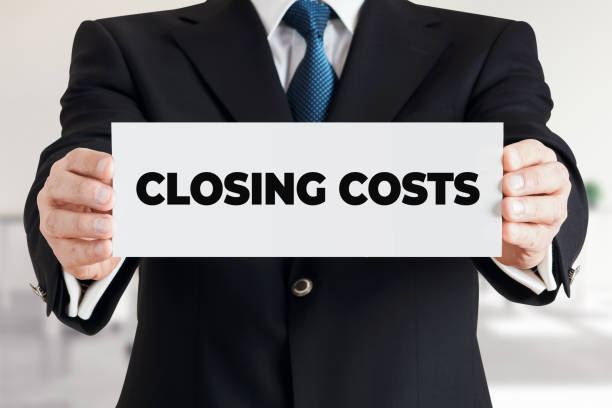Property prices have been steadily rising for a while. This is a result of both the lack of land available for the construction of new homes and the growing population in every nation. For both buyers and sellers of real estate, this has led to many financial problems.
To let the seller cover the closing costs of buying a property, however, is a common idea that every buyer has. If you have a home loan, you must pay these additional fees to the bank or lender.
Though it may surprise you, the seller’s disadvantage in having to cover closing costs is much greater. Many first-time home buyers are unaware of and/or confused about this.
As a result, the focus of this article will be on describing closing costs in real estate transactions and why they are bad for the seller.
Table of Contents
Why Would the Seller Pay for the Closing Cost of the Buyer?
It’s a Buyer’s Market
There may be more benefits than drawbacks to a seller paying closing costs if the real estate market is a buyer’s market at the time of closing. When there is more supply than demand for properties in a given area, it is said to be a buyer’s market and buyers have more negotiating power.
For instance, if there are ten houses being sold on the same street but only three potential buyers, those buyers will now have the power to negotiate deals in their favor as the sellers compete to sell their properties.
When selling your home in a buyer’s market, you might need to be more accommodating to draw in potential buyers. Potential buyers won’t have to pay money upfront for the purchase because closing costs are paid out of pocket when offered to cover them.
You don’t necessarily need to reduce your asking price; however, offering to pay the buyer’s closing costs can set your deal apart from the competition.
Urgency to Sell
Your need to sell the property quickly is another justification for paying the buyer’s closing costs in addition to the seller’s. Consider covering the buyer’s closing costs if you need to sell your property quickly and need to close the deal right away. Once more, it will improve the buyer’s interest in the negotiations and, most likely, aid in the quickest possible sale of your property. In this scenario, you might have to accept a smaller profit margin but the deal will be closed much more quickly.

Disadvantages of Seller Paying Closing Costs
Lenders and Fraud Charges
Buyers frequently make offers above the asking price when the seller is requested to pay the closing costs, with the extra money being applied as credit. The practice has its own set of issues even though it may seem like a good idea. Every sale must be appraised for a specific price in order to qualify for a loan, whether it concerns a primary residence or an income property. The sale is likely to fall through if the buyer is making a higher offer than the asking price but the property is not appraised for that amount.
Knowing this, some people attempt to circumvent loan regulations by getting the price increase and credit line off the books, but this is considered fraud. You might be prepared to cover both closing costs, but you also need to take into account the rules set forth by the US Department of Housing and Urban Development. There are restrictions on how much a seller can pay because seller concessions frequently drive up the cost of properties even though their value is unchanged.
The conventional concession limits, FHA concession limits, and VA concession limits are used by lenders as guidelines and conditions for the buyer’s loan. In accordance with these laws, sellers are only permitted to contribute 3% to 9% of the purchase price or closing costs, depending on the loan. It is fraud to attempt to transfer funds outside of these restrictions, and doing so could land the seller in even more serious legal trouble.
Repairs After the Initial Sale
Most people believe that once the sale is finalized and the keys are handed over, the seller’s obligations are over. However, after the buyer has moved in, they can still get in touch with the seller about repairs, broken appliances, and other flaws. All of these are the seller’s responsibility to fix, but if they have already used up all of their available credit by covering the buyer’s closing costs, they won’t be able to.
The best course of action is to fix all issues prior to the move-in date so that they won’t exceed the seller’s credit limit if the seller decides to pay the buyer’s closing costs. A possible fraud case could also result from the seller offering repairs after they have moved in and the seller’s credit limit has already been used up, as this is viewed as an attempt to extend credit outside of the loan’s terms.
Total Closing Costs
How much is paid at closing by the seller? In contrast to the buyer’s closing costs, which typically amount to 2% to 3% of the purchase price, a seller will typically pay closing costs that range from 6% to 10% of the total purchase price. 2% to 3% might not seem like much, but they can have a significant impact on your financial situation and return on investment. If a seller decides to pay both fees, it will significantly reduce the profit margin they were hoping for and might even make the property a bad investment in income property.
If the seller is seriously thinking about paying the buyer’s closing costs, it would be wise to thoroughly calculate the total selling costs on a seller net sheet, taking into account both the buyer’s fees and the anticipated net earnings. Mashvisor’s property investment tools can also be used to obtain a ballpark figure for your net earnings after deducting closing costs.
Less Profit
Your profit may suffer if you make seller concessions but don’t receive the higher offer you were hoping for. If you contribute to a buyer’s closing costs, you might be able to get them to pay a higher sales price, but if the buyer refuses, you might end up with less money.

Disadvantages for the Buyer If the Seller Pays for Closing Costs
You Could Have Mortgage Approval Issues
Your lender will probably require a home appraisal if you intend to finance the purchase of your new home. Most mortgage lenders will ask you to make up the difference if the appraisal value is less than the purchase price.
For example, if you’re paying $400,000 for a home, which includes seller concessions (and you would have agreed to $390,000 without seller concessions), but the appraisal comes back at $390,000, the loan amount will remain the same, and you’ll need to contribute an additional $10,000 toward the down payment.
You Could Need a Larger Down Payment
A portion of the purchase price is what your down payment equals. If you agree to pay $400,000 instead of $390,000 for a house, you will need to find an extra $1,000 for a 10% down payment or an extra $2,000 for a 20% down payment.
You Could Have Higher Mortgage Payments
You’ll pay less at closing but will probably have higher mortgage payments if you offer a higher purchase price in exchange for seller concessions. Before agreeing to a higher purchase price, be sure you can handle the monthly payment because borrowing more money means paying more interest.
Is It Worth It for the Seller to Pay Closing Costs?
In general, there are more drawbacks than advantages to a seller covering both parties’ closing costs. In a buyer’s market, you might be able to sell the property faster, but you run the risk of not only hurting your bottom line but also of the deal falling through and having to list your house again. The buyer will also be responsible for paying closing costs associated with appraisals, loans, fraud, and other problems.
According to the majority of experts, you should only seriously think about paying buyer’s fees if you are in urgent need of a buyer for your property or if you have been trying to sell it for months. Your best course of action in this situation might be to pay the fees. Instead, there is no need for the seller’s concessions to be discussed during the negotiation if you are currently selling in a seller’s market, which means you are receiving multiple offers for your property.
If you are unsure of what to do, speak with your real estate agent about the likelihood of your property selling without the seller’s concessions or whether you should sacrifice your financial position in order to make a sale.
Conclusion
The seller paying the closing costs has many disadvantages. It may seem appealing to ask a home seller to cover some of your closing costs, especially if you don’t have much money set aside or are having trouble making your down payment.
But generally speaking, merchant concessions have real drawbacks, and they typically result in higher long-term costs (in addition to a higher regular installment).
FAQ
Is It Disadvantageous for Sellers to Pay Closing Costs?
They must pay closing costs, and that is disadvantageous.
Why Should the Seller Not Pay Closing Costs?
Because doing so would be financially detrimental to them.
Is Property Appraisal Included in Closing Costs?
Yes, it is part of the closing costs.



